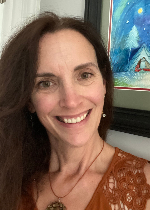Terry was a 64-year-old single man with advanced esophageal cancer who had recently discontinued treatment and entered our home hospice care program when I met him for the first time. He lived alone in a boarding home for ex-convicts, presented as withdrawn and depressed, and rarely spoke through my initial visit, but agreed to my offer to return the following week. When I arrived for our second visit, Terry said he had had a rough night, adding, “But then again, every night is rough.” When I asked him to elaborate, he said that he rarely slept and when he did fall asleep, he was plagued by horrible nightmares about being “in hell.” This led into conversation regarding his beliefs about an afterlife, and he revealed that he felt certain that he would be condemned to hell for things he had done when he was younger. Further, he shared his belief that his cancer diagnosis was a punishment from God for being a bad person. Terry speculated, “You probably already know what I’ve done.” When I responded that I didn’t, and that he was under no obligation to tell me but that I was more than willing to listen, he burst into tears and told me, “I’m a sick, sick [man]. Didn’t anyone tell you I’m a registered sex offender?” He went on to share that he had molested his ex-girlfriend’s daughter 10 years earlier, and had spent time in jail for it. He added, “I’m no better than the priest that molested me and my brother. He was a sick man and so am I.”
Every day, we encounter people who are struggling with shame, regret, fear, lack of forgiveness, and other existential and spiritual issues in addition to their illness. In fact, it is often the experience of illness that may prompt a self-inventory and an increase in spiritual distress. As social workers, we often unearth and witness this process for our clients while conducting psychosocial-spiritual assessment.
How might we skillfully respond when our clients express spiritual distress? While it is often appropriate to offer a referral to our colleagues in chaplaincy, there are times when the chaplain is either not available or when the client refuses the referral. As a part of a focus on biopsychosocial spiritual assessments, oncology social workers need to develop clinical skills and competencies to address spiritual concerns with our clients.
AOSW’s Spirituality SIG seeks to encourage and promote awareness of the importance of spiritual assessment and interventions and to assist oncology social workers in developing a skill set to provide competent delivery of psychospiritual care to patients and families. Through our online forum in the “My Communities” section of the AOSW website (member login required), you can obtain resources such as spiritual assessment and intervention tools and see articles on psychospiritual care. Each year at the AOSW Annual Conference, our Spirituality SIG meeting offers a rich opportunity to connect and network in person, and to also participate in a relevant workshop. Please join us in 2018, when we will present what unfolded with Terry and discuss both theory and practice as it relates to some of the common spiritual and existential challenges faced by our clients.

